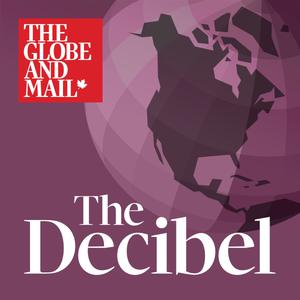
The Decibel
The Globe and Mail
Context is everything. Join us Monday to Friday for a Canadian daily news podcast from The Globe and Mail. Explore a story shaping our world, in conversation with reporters, experts, and the people at the centre of the news.
- 26 minutes 8 secondsThe difficult path ahead for peace in Gaza
The mood in Israel and Gaza turned from celebratory to uncertain in the hours after a ceasefire deal was announced. The day after the deal was made public, Israel continued air strikes in Gaza and then delayed a vote on the deal. But by the end of Thursday, it looked like the process may be back on track.
Thomas Juneau is a professor of public and international affairs at the University of Ottawa. He explains what we know about the deal so far, and how the most difficult part of this ceasefire has yet to happen.
Questions? Comments? Ideas? E-mail us at [email protected]
17 January 2025, 10:00 am - 49 minutes 10 secondsMachines Like Us: This mother says a chatbot led to her son’s death
In February, 2024, Megan Garcia’s 14-year-old son Sewell took his own life.
As she tried to make sense of what happened, Megan discovered that Sewell had fallen in love with a chatbot on Character.AI – an app where you can talk to chatbots designed to sound like historical figures or fictional characters. Now Megan is suing Character.AI, alleging that Sewell developed a “harmful dependency” on the chatbot that, coupled with a lack of safeguards, ultimately led to her son’s death.
They’ve also named Google in the suit, alleging that the technology that underlies Character.AI was developed while the founders were working at Google. ‘Machines Like Us’ reached out to Character.AI and Google about this story. Google did not respond to request for comment and a spokesperson for Character .AI said “we do not comment on pending litigation.”
Host Taylor Owen spoke to Megan Garcia and her lawyer, Meetali Jain, to talk about her son and how chatbots are becoming a part of our lives – and the lives of children.
If you or someone you know is thinking about suicide, support is available 24-7 by calling or texting 988, Canada’s national suicide prevention helpline.
16 January 2025, 10:00 am - 22 minutes 39 secondsWhat 2025 holds for your personal finances
If you kicked off 2025 making personal finance resolutions, it can be hard to know where to start. That question is made more difficult when factoring in all the uncertainty around how the tariffs that incoming U.S. President Donald Trump has threatened to enact will affect our economy.
Rob Carrick is the Globe’s personal finance columnist and co-host of Stress Test, the Globe’s personal finance podcast for Gen Z and millennials. He’s on the show to talk about what to expect from the year ahead in personal finance, whether you’re looking to get on top of your investments, establish an emergency fund, or dip your toe into the housing market.
Questions? Comments? Ideas? Email us at [email protected]
15 January 2025, 10:00 am - 24 minutes 20 secondsThe women changing the face of Canadian rodeo
Cowgirls love the rodeo just as much as cowboys, but for the better part of the past century, there’s only been one event for women — until now. Breakaway roping, dubbed the fastest event in rodeo, has swept competitions across North America, and is corralling more space for cowgirls in the process.
The Globe’s Jana Pruden was at the 50th Canadian Finals Rodeo this fall, where the second-ever women’s event was showcased at the country’s biggest rodeo for the first time. She speaks with Canadian breakaway ropers and gives us a sense of the history of women in rodeo, and just how hard they’ve worked to rope and ride alongside the cowboys.
Questions? Comments? Ideas? Email us at [email protected]
14 January 2025, 10:00 am - 22 minutes 14 secondsWill alcohol have cancer warnings like cigarettes?
Dry January – when people decide to consume no alcohol – is a common new year resolution for many. But this month, the U.S. Surgeon General gave the public another reason to take stock of their drinking habits. They recommended that warning labels of cancer risks should be placed on alcohol containers, akin to the labelling on cigarette packaging.
Dr. Adam Sherk, senior scientist and Special Policy Advisor at the Canadian Centre in Substance Use and Addiction joins the podcast to explain the push for warnings on alcohol and what the latest science tells us about the definitive links between alcohol and a number of cancers.
Questions? Comments? Ideas? Email us at [email protected]
13 January 2025, 10:00 am - 29 minutes 5 secondsThe rise and fall of Justin Trudeau
Prime Minister Justin Trudeau’s resignation earlier this week came after months of people calling for him to step down. How he will be remembered will largely depend on what comes next – how the Liberal party moves forward, what the next government does, and how Trudeau himself writes his next chapter.
Campbell Clark is the Globe’s chief political writer. Today, he joins The Decibel for a look back at Trudeau’s career from the very beginning: the rise to the top, the long fall from grace, and what may come to define his legacy.
Questions? Comments? Ideas? E-mail us at [email protected]
10 January 2025, 10:00 am - 22 minutes 25 secondsRebuilding the Liberals after Trudeau
Beyond picking a new leader, the federal Liberals also need to repair their reputation with voters – while continuing to run the government as Donald Trump ratchets up his pressure on Canada. And they have about 75 days to do all this.
Shannon Proudfoot is an Ottawa-based feature writer for The Globe and Mail. She’s on the show to talk about the existential questions the party is grappling with at this moment, and how it compares to past times when the party has found itself in the political wilderness.
Questions? Comments? Ideas? Email us at [email protected]
9 January 2025, 10:00 am - 22 minutes 23 secondsTrudeau prorogued parliament: Here’s what it means and what’s next
When Trudeau announced his plan to resign on Monday morning, he also shut down Parliament until March 24, giving the Liberal Party time to select a new leader. A confidence vote will follow shortly after the House returns, almost certainly triggering a spring election.
Bill Curry is the Globe’s Deputy Ottawa Bureau Chief. He’s on the show to talk about how the government proceeds from here – what happens to the bills that haven’t been passed yet, like proposed changes to the capital gains tax, what we can expect when the House returns, and what all of the political upheaval means for how Canada deals with the incoming Trump administration.
Questions? Comments? Ideas? E-mail us at [email protected]
8 January 2025, 10:00 am - 24 minutes 28 secondsThe end of the Trudeau era
After three federal election wins and just over nine years in office, Prime Minister Justin Trudeau announced his resignation on Monday. Trudeau had been facing mounting pressure within his party to step down, after many months of polls showing dwindling public support for the Liberal party and several key by-election losses.
Now, the Liberal Party has to choose a new leader while Parliament is prorogued.
The Globe’s senior political reporter Marieke Walsh joins The Decibel to explain what led to Trudeau’s exit and what comes next as political uncertainty now looms over Canada.
Questions? Comments? Ideas? Email us at [email protected]
7 January 2025, 10:00 am - 20 minutes 58 secondsHow many activities are too many for kids?
When it comes to enrolling your kids in extracurricular activities, how many is too many? Is there such a thing as over-scheduling your kids? Parenting experts say ‘yes,’ and that doing so can have long-term negative effects on your children.
Amberly McAteer is a contributing columnist for The Globe and Mail who recently looked into what the research says about programming activities for your kids, how long we’ve been ignoring expert advice, and what it means for their well-being.
Questions? Comments? Ideas? Email us at [email protected]
6 January 2025, 10:00 am - 17 minutes 46 secondsWho stole half-a-million dollars worth of cheese?
Neal’s Yard Dairy, a cheese distributor in England, has been an essential part of the artisanal cheddar revival in the United Kingdom. In October 2024, they announced that 22 tonnes of artisanal cheddar — about 300,000 pounds worth, or around CAD$541,000 — had been stolen from them.
Paul Waldie is the Globe’s Europe correspondent, based in London. Today, he’s on the show to talk about how this scam unfolded… and why someone might go after cheddar cheese, of all things.
Questions? Comments? Ideas? Email us at [email protected]
3 January 2025, 10:00 am - More Episodes? Get the App
Your feedback is valuable to us. Should you encounter any bugs, glitches, lack of functionality or other problems, please email us on [email protected] or join Moon.FM Telegram Group where you can talk directly to the dev team who are happy to answer any queries.
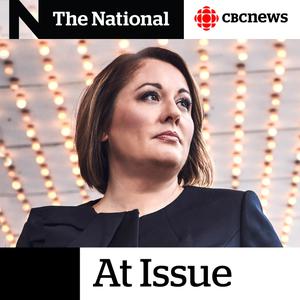 CBC News At Issue
CBC News At Issue
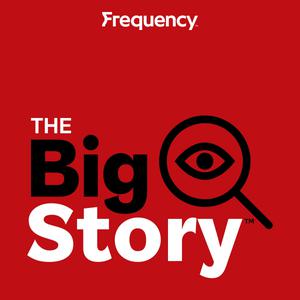 The Big Story
The Big Story
 Front Burner
Front Burner
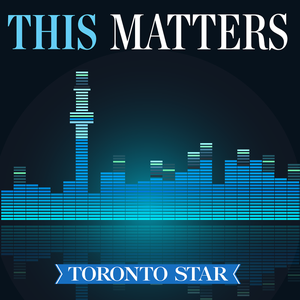 This Matters | Daily News Podcast
This Matters | Daily News Podcast
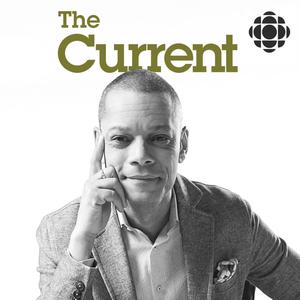 The Current
The Current
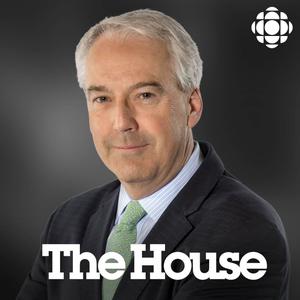 The House from CBC Radio
The House from CBC Radio